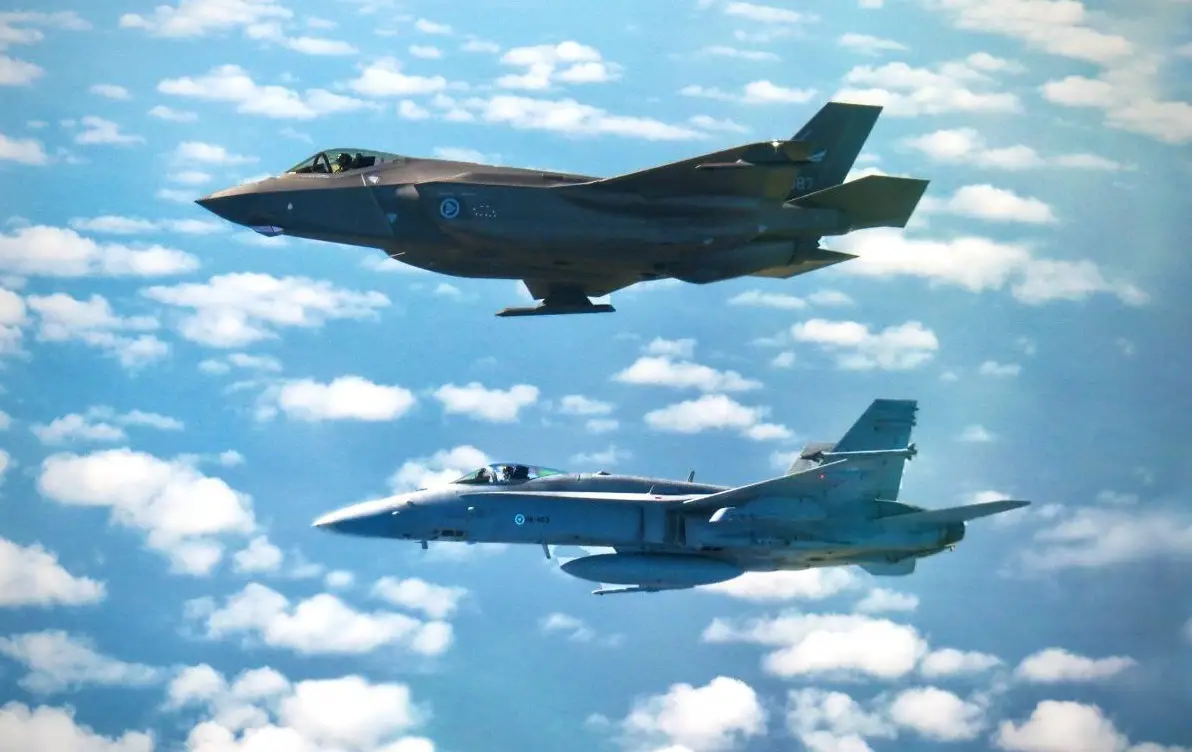The High North and the Arctic region are important priorities for NATO. Building cooperation in the air domain has been an important focus for NATO and an initiative of Norwegian Air Chief, Major General Rolf Folland. In March 2023, The Nordic Air Chiefs defined their intent to have a unified air defence. To include multiple Agile Combat Employment and training exercises between Norway, Denmark, Finland and Sweden, enhancing interoperability and cooperation. Furthermore, the idea of a Nordic Air Operation Centre moved on to include the Arctic region with the United Kingdom, United States and Canada. The advanced cooperation among Nordic Allies enables integration across Scandinavia. At the strategic level, Norway covers NATO Air Policing (AP) across the large stretches of the North Sea, Denmark, Sweden, and Finland. Norway also has the watch over of the Baltic Sea shores. Close collaboration regularly exists when the Nordic Allies are alerted to conduct Air Policing missions.
“NATO’s air power in the High North and Arctic region is a critical component of our collective defence strategy, ensuring stability and security in this strategically vital area. Our advanced capabilities and readiness to respond to any threat underscores our commitment to protecting NATO territory. Through continuous training and collaboration, we maintain a robust presence that deters aggression and promotes peace,” said Brigadier General Michael Krah, Deputy Chief of Staff Operations at NATO’s Headquarters Allied Air Command.
“With solid support from our Allies, such as the United States, the United Kingdom and Canada, the Nordic countries Denmark, Finland, Norway and Sweden provide a credible military deterrence on behalf of NATO in the High North region,” said Major General Rolf Folland.

Examples being Swedish and Danish combined scrambles; and Finland and Sweden combined AP missions with Baltic Air Policing nations. Norway is firmly integrated with Sweden in the East, United Kingdom in the West, and Denmark in the south. Recently, in a combined effort, Danish and Swedish Quick Reaction Alert fighter jets intercepted a Russian military aircraft in the airspace over the Baltic Sea. The Danish and Swedish aircraft were operating under their own national command during the entire process. This incident marked the first time Denmark and Sweden have worked together in this way. Another example includes the Finnish Air Force participating with five F/A-18 Hornet multirole fighters in the first flight phase of Fighter Weapons Instructor Course 24, together with Norwegian F-35s: an exercise in Norway from July 10 to August 2, 2024.
FWIC is a multinational training held every two years, including a theory phase and two flight phases. The organisation of the course is shared between Norway and the Netherlands. During exercise Nordic Response earlier this year, the Nordic countries cooperated on a combined concept for air power, intensifying command and control. This served as a starting point for a Nordic and Arctic concept for joint air operations and more exercises. The Arctic region carries significant strategic interests including maritime routes, resource access, climate conservation and territorial claims. In the High North, NATO is increasing its presence and vigilance, and the Alliance continues to deter aggression and protect common values and interests. Showing strength, will and unity to keep people in the member States safe.













